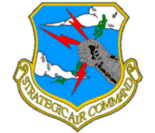Comments on Len Anderson's History by Jim Jones, WØNKNInteresting discourse on SSB development. I agree substantially with the
"facts"/events in the "history lesson", but have to take issue with some of
the opinions, particularly the comments that Collins (Radio) was "not all
that innovative". That statement may be true regarding single sideband, but
obviously does not consider the avionics contributions made by the company.
While Autotune may seem pretty crude by today's standards, it was the
difference that won the ART-13 contract for Collins that was largely
responsible for the company's ultimate success. Early work with autopilots,
flight directors and the Mercury, Gemini and Apollo programs should be
considered when assessing the capabilities of the company.
Collins didn't invent single sideband, nor the mechanical filter for that
matter. But Walter Wirkler, one of the first engineers hired by Arthur in
1934 patented a phasing SSB transmitter in the late thirties (after graduate
work at Ohio State). So Collins was involved in SSB considerably before the
fifties. I'm working with the patent folks at Collins to determine if there
are others.
Lemay invited Arthur to Offutt in November 1954 for a briefing for industry
leaders that included General Motors and other Blue Chippers. I get the
impression that Lemay and Arthur had not met previously, that Griswold had
actually made the arrangements for Collins to attend.
Collins received a contract from Rome ADC in 1955 for single sideband
developement ("Birdcall"), but Lemay and Griswold didn't want to wait, so
they arranged the March 1956 test using a 75A-4/KWS-1 and an Eldico system
(to keep it competitive). The second test was late June and included an
ARC-58 prototype as well as the Gold dust twins. An observer from Rome ADC
was also included to add credibility.
Jim Jones, WØNKN
February 12, 2002
Cedar Rapids, IA, USA
Home
History
|

